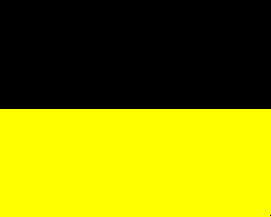von Georgi



Now, Georgi was the chief of the k.k. Landesverteidigung or National Defense organisation for Austria beginning in December 1907. This was a militia, the equal yet opposite to the Hungarian Honved, and it aided in the recruitment and conscription of the population for military service. During the First World War, the Landwehr, the fighting arm of this militia, was composed of the less-than-reliable types. This was because men who were rejected by the common army for medical reasons, age, or political unreliability were sent to the Landwehr. Although some regiments of the Landwehr saw glory in battle, many other regiments were rife with desertion and poor morale.
Georgi attempted to alleviate low morale even before the war by trying to improve the equipment and training of its officers. Georgi was in constant battle for money with the Honved, which had since 1907 gotten a lion's share of the money to buy artillery (a concession made by the Kaiser for Budapest's support in the cabinet's foreign and domestic policies). After 1912, Georgi succeeded in diverting money to the Landwehr, but clearly its problems were deeper than finances. The World War would be the first test of the "new" Landwehr.
In battle, the enemy would often direct its propaganda at the sectors occupied by Landwehr regiments, hoping to lure non-German or non-Magyar soldiers to the other side. In the case of such regiments as I.R. 28, whole battalions crossed to the enemy, necessitating a regiment's disbandment or reorganisation. Failing this, the enemy might direct its attacks toward a sector occupied by the Landwehr, knowing that the morale and fighting spirit was weaker than regiments of the common army.
General von Georgi was succeeded in this capacity by General Czapp von Birkenstetten in late 1917. The following timeline summarizes his von Georgi's military career:
May 1891 Chief of Staff for the 15. infantry division until May 1893
Dec 1896 Promoted to Oberst
Jan 1898 Chairman of the 10th Department, War Ministry until Jan 1903
Jan 1903 Commands 42. Landwehr infantry brigade until Jul 1906
May 1903 Promoted to Generalmajor
Jul 1906 Section chief in the k.k. Ministry of Defense until Dec 1907
May 1907 Promoted to Feldmarschalleutnant
Dec 1907 Chief of the Landwehr until Jun 1917
Nov 1911 Promoted to General der Infanterie
May 1916 Promoted to Generaloberst
Jun 1917 Retired
In 1919, General von Georgi became an honourary President for the Vereinigung Alt-Neustadt, a knightly organisation for graduates of the military academy at Wiener Neustadt, which he maintained until his death.
Friedrich Freiherr von Georgi died on 23 Junuary 1926 in Vienna.
GWS, rev. 10/02
